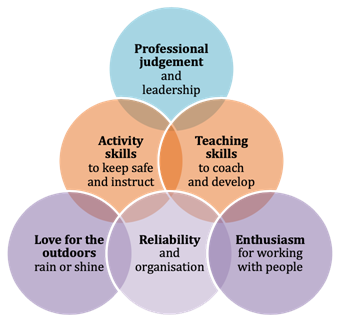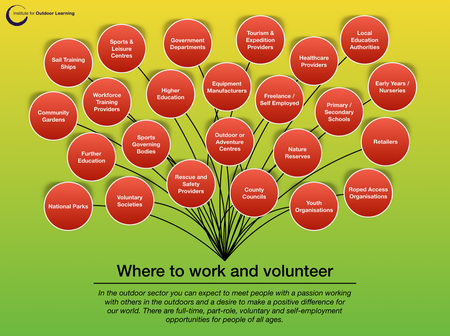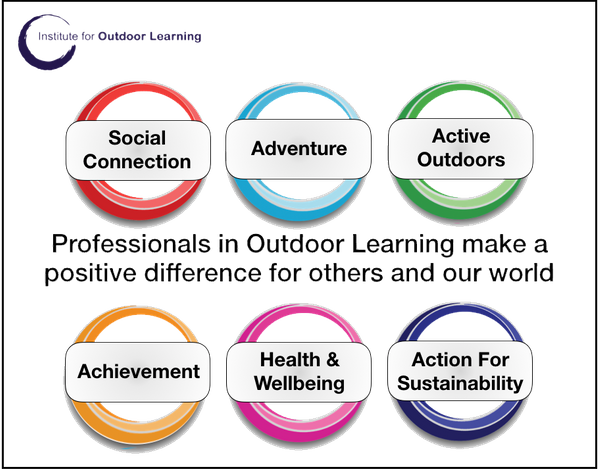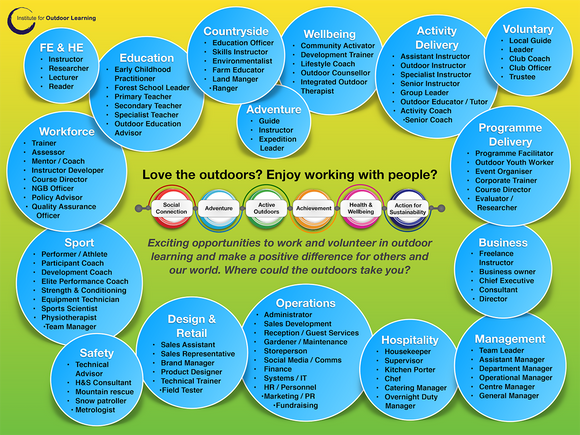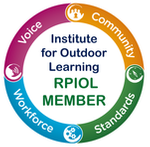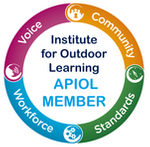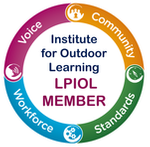Working in Outdoor Learning
The Outdoor Sector offers a wide range of options for people of all ages
If you work in the outdoor sector you can expect to meet people with a passion for the outdoor environment, a desire to meet and get to know others, a love of developing knowledge, skills and experience, and a willingness to contribute to a strong team atmosphere.
There are full-time, part-time, voluntary and self-employment opportunities for people of all ages. You can work delivering, leading or managing outdoor learning as well as in operations, hospitality, logistics, accounts, maintenance and grounds.
What is working in outdoor learning like?
Developing skills and knowledge and provide exciting and often transformational experiences to children or adults can be rewarding and deeply fulfilling. You can turn a personal interest in an outdoor adventurous activity or appreciation of nature and the natural environment into something more than a hobby.
If engaging others in your passion, and helping them learn, develop and grow as individuals is what gets you out of bed in the morning come rain or shine, you can do it again and again in outdoor learning. It’s a lifestyle thing.
-
To work in outdoor learning you will need to start with a love for the outdoors come rain or shine, reliability and organisation, and enthusiasm for working with people.
Employers often look for evidence of your interest in the outdoors through your hobbies and interests, clubs or societies or perhaps membership or voluntary work with scouts, guides, or other voluntary organisations.
-
You will need to gain activity skills to inspire and keep participants safe and teaching skills to coach and develop people through the activities you lead.
Some of these skills can be learnt during college or university courses, or on specific activity training courses from National Governing Bodies or Awarding Bodies. Many you will learn in the workplace and from personal experience.
-
Experience and further training and coaching will help you gain the judgement and leadership expected of an outdoor professional.
You will develop your decision making in changeable conditions, leadership styles and advanced facilitation and training skills with further training, coaching, and ongoing reflective practice.
Whatever your role, employers will need you to be trained and up-to-date with first aid, safeguarding and data protection and be deemed “competent” before you lead an activity or programme. Being able to drive a minibus may also be required.
What options do you have for working in outdoor learning?
Volunteers have always been a core part of the outdoor sector. Giving your time to help others benefit from the magic of an outdoor learning experience is very rewarding.
You could work with children, young people, young adults, families, adults across all ethnic groups and communities. Some people choose to work with disadvantaged, less able or more vulnerable people. Others work with elite performers or high-flyers.
Which activities or subject areas interest you?
Outdoor learning includes a wide range of activities and subjects such as adventure sports, outdoor skills & challenges, field studies or environmental connection. You’ll find some examples below.
Do you wish to specialise in just one or two activities or subjects, or are you looking to be a multi-activity specialist?
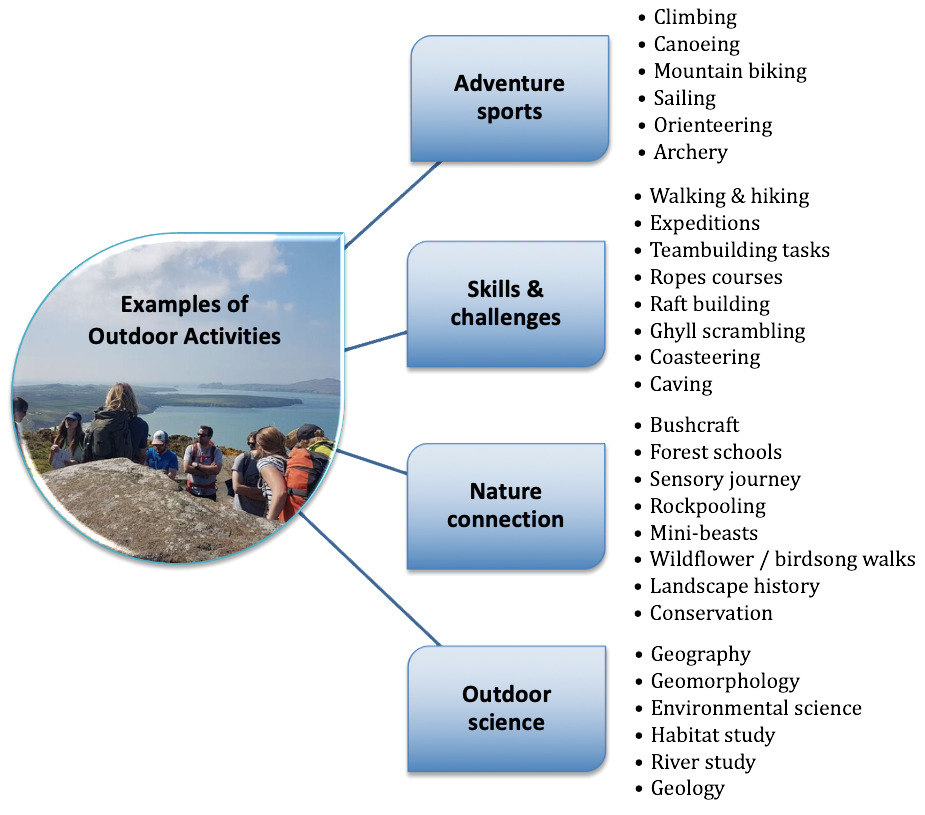
Whatever the activity you are leading, the outdoor learning community expects its colleagues to actively promote inclusion, equality and participation by all; to overtly respect the environment and encourage behaviours in others that preserves it; to encourage all participants regardless of aptitude to achieve to their limits; and to promote on-going use of the outdoors and onward progression.
You are likely to be involved in setting up and running events for school children, young people, families or adults over a few hours, a full day or longer. Some aspects of this may happen indoors too – such as planning and reviewing experiences with groups.
What does an Outdoor Learning Job Involve?
You are likely to be involved in setting up and running events for school children, young people, families or adults over a few hours, a full day or longer. Some aspects of this may happen indoors too – such as planning and reviewing experiences with groups.
Outdoor learning makes a real difference for others and you will be helping others create positive memories and achieve lasting benefits.
What will you gain?
Working in Outdoor Learning is a foundation for your personal, social and professional life. Many employers value the transferable skills (like planning, motivating others, communicating, taking responsibility, can-do attitude, etc.) that people who work in outdoor learning can bring to their future jobs.
Where to start
The IOL Outdoor Workforce Map will give you an idea of the different job roles in the sector, and what is required in each of them. Every employer or organisation will have their own structure and titles for their staff and preferred route into employment.
Here are the main options:
Outdoor apprenticeships
Apprenticeships are a great way to earn while you learn. The NEW Outdoor Activity Instructor Apprenticeship (England) is designed specifically for working in outdoor learning. Other schemes are available in Scotland, Wales and Northern Ireland.
Can I work for myself?
Absolutely. Many people work freelance and some run their own business providing outdoor learning experiences direct to clients on a part-time or full-time basis.
The IOL Guide to Working Freelance in Outdoor Learning is a useful starting point.
Where can I get my questions answered?
The IOL Geographical areas are your first port of call. They hold meetings, workshops and conferences where you can get to know your local outdoor learning community and find out about opportunities in your area.
You can download this page as a pdf document.
